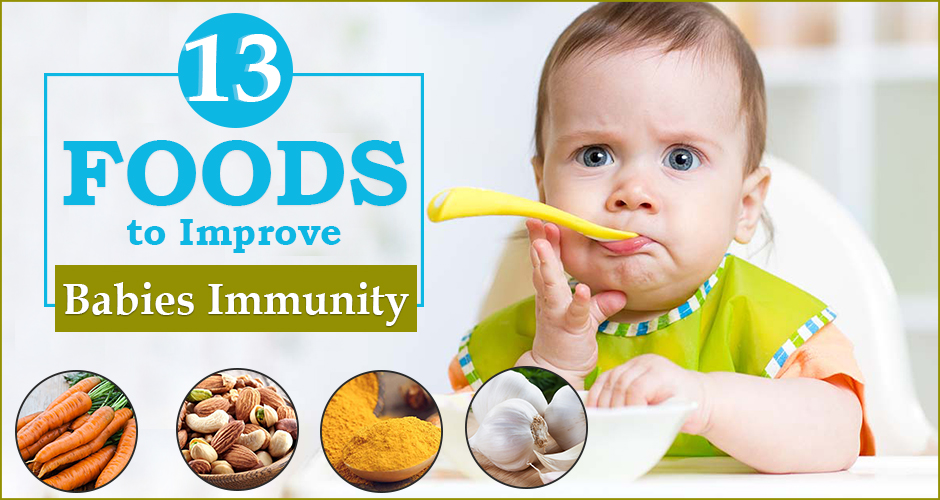
13 Superfoods To Improve A Baby's Immunity
Newborn babies have an underdeveloped immune system. During the last trimester of pregnancy, antibodies from the mother’s body are passed on to the baby’s body, so baby has a passive immunity. They also receive antibodies from colostrum (the first thick yellow milk) and breast milk but their bodies are not as immune as adults. Childhood vaccinations are also given to make the baby’s body help fight against infections and diseases. Take a look at these superfoods for babies.
But, it is also equally important to include some immunity boosting foods in the child’s diet. These foods contain nutrients to boost his/her immunity and strengthen baby’s immune system to fight illnesses. Time and again, we stress the importance of a balanced diet for kids. A balanced diet with the adequate amount of proteins, vitamins, minerals, fats, and carbohydrates is vital for a baby’s growth and development and also boosts the immune system of the child.
Here Are 13 Superfoods For Babies To Improve Their Immunity
#1. Green Vegetables
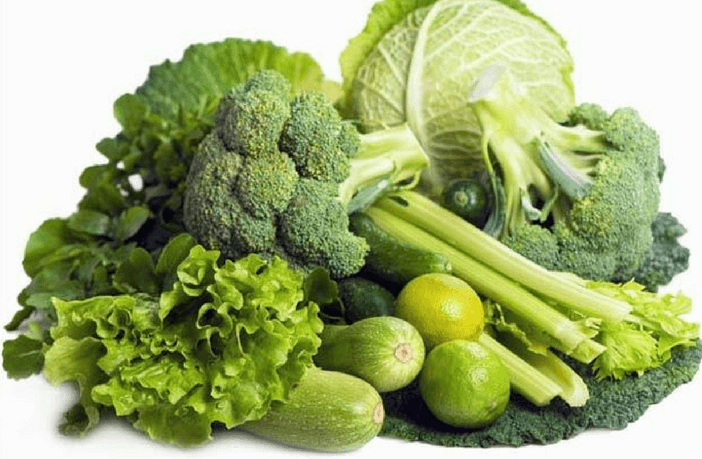
Image Source: Pinterest
Vegetables such as cabbage, peas, spinach, cauliflower, and broccoli are rich in nutrients such as vitamin A, vitamins C, chlorophyll, essential fatty acids, and antioxidants such as beta-carotene and carotenoids. They also have iron which is important for the production of white blood cells and antibodies. Green vegetables not only boost the immunity system of babies but also help in DNA repair.
Recommended Age: 6 + months
How to add them to your baby’s diet?
- Introduce simple veggie purees to your baby and then add mashed vegetables to khichdi, soup and porridge.
- Toddlers can be given pulav, salads and vegetables can be added to dosa, uttapam, cheela and omelette.
Also Read: 13 Benefits of Figaro olive oil for baby
#2. Garlic
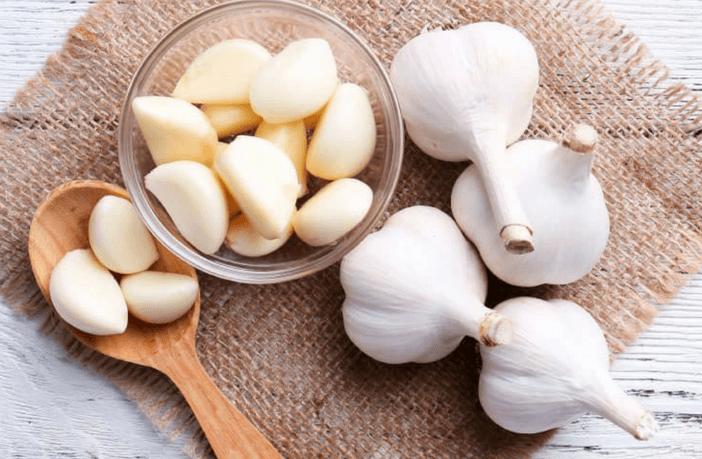
Image Source: dr. axe
Garlic possesses antiviral, antifungal and antibacterial properties. It helps in increasing the number of virus-fighting cells in the body and also improves blood circulation. Garlic also helps in fighting against H. pylori bacteria which causes infections in the stomach. High sulfur content in garlic makes it beneficial in fighting against cold and flu.
Recommended Age: 8 + months
How to add it to your baby’s diet?
- You can add one fresh crushed garlic clove to baby’s soup, rasam, rice or khichdi.
Note: Some babies might have allergic reactions after eating garlic. So watch out for any reactions and consult your pediatrician if the need be.
Also Read: 25 Effective Home Remedies To Treat Cold And Cough in Babies & Kids (3 months to 3+ years)
#3. Turmeric (Haldi)
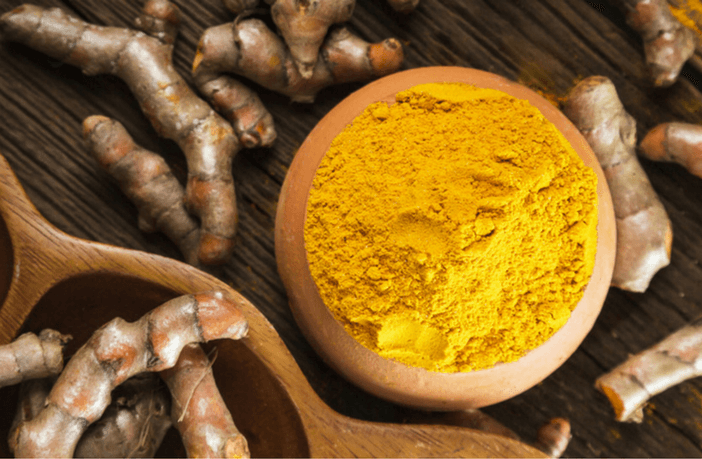 Image Source: medicalexpress
Image Source: medicalexpress
Although not a food, Turmeric is a traditional Indian spice that is loaded with immunity-boosting properties. The high content of Curcumin in Turmeric gives it anti-inflammatory properties, which help in fighting against cold, fever, flu and joint pains.
Recommended Age: 6 + months
How to add it to your baby’s diet?
- You can add a pinch of turmeric to baby’s dal and vegetables, soup, khichdi and rice.
#4. Carrots

Image Source: organic facts
Carrots are a rich source of a number of nutrients such as iron, zinc, Vitamin A, Vitamin C, zinc etc. The high nutritional constituents in carrots play a big role in keeping the cells healthy and growing White Blood Cells (WBC). They also help in forming a barrier that prevents germs, viruses, and bacteria from entering the body.
Recommended Age: 6 + months
How to add it to your baby’s diet?
- Carrot puree is one of the first solid foods that you can give to your baby.
- You can give your child carrot soup, carrot slices as finger food, carrot halwa and you can add small cooked pieces of carrot to baby rice.
Also Read: Read the Benefits of RAGI AS A SUPER FOOD for your Baby
#5. Yogurt
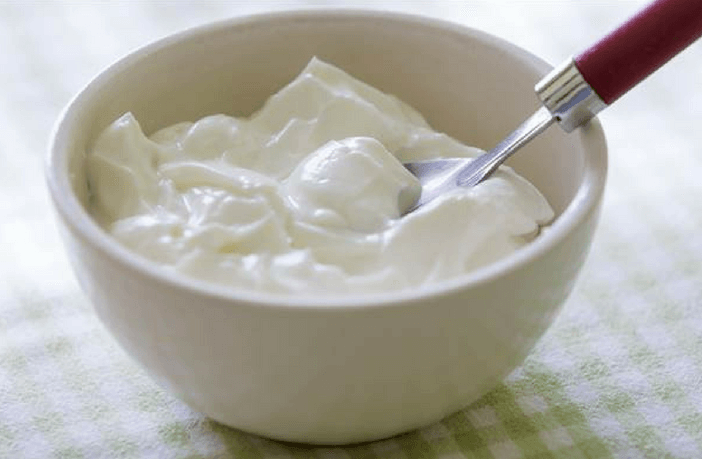 Image Source: today
Image Source: today
Yogurt is rich in probiotics or ‘good bacteria’ which help in fighting against the germ-causing bacteria. It is also a rich source of Vitamin D. Regular intake of yogurt improves digestion, strengthens the bones, enhances the tissue function and boosts the immune system. If your baby has been diagnosed with lactose intolerance, then he may be able to eat yogurt because the live cultures in the yogurt help to digest the lactose from the milk.
Recommended Age: 7 + Months
How to add it to your baby’s diet?
- You can give your child plain yogurt or yogurt with mango, mashed sweet potato, mashed avocado and greek yogurt.
- You can also serve it with rice.
Note: Babies with milk allergies can suffer from allergic reactions when fed yogurt. If your baby suffers from vomiting, diarrhea, or skin rashes after having yogurt, stop giving it and consult a pediatrician.
#6. Citrus Fruits
 Image Source: NDTV food
Image Source: NDTV food
Fruits such as oranges, clementine, grapefruits, lime, and lemon are rich in Vitamin C which increases the level of antibodies and stimulate the production of the white blood cells in the body. These help to destroy infection-causing bacteria and viruses.
Recommended Age: 12+ months
How to add it to your baby’s diet?
- You can cut the fruit into fingertip-sized pieces and give to your baby. These would be easy to swallow for the baby and there would be lesser chances of choking.
Note: Citrus fruits are acidic in nature so they should not be given before 1 year of age. Some children can also get allergic reactions upon eating citrus fruits. They may also cause an upset stomach or diaper rash so be vigilant when you give citrus fruits to your child.
Also Read: 7 Best (& Proven) Home Remedies to Treat Low Iron in Kids
#7. Ginger
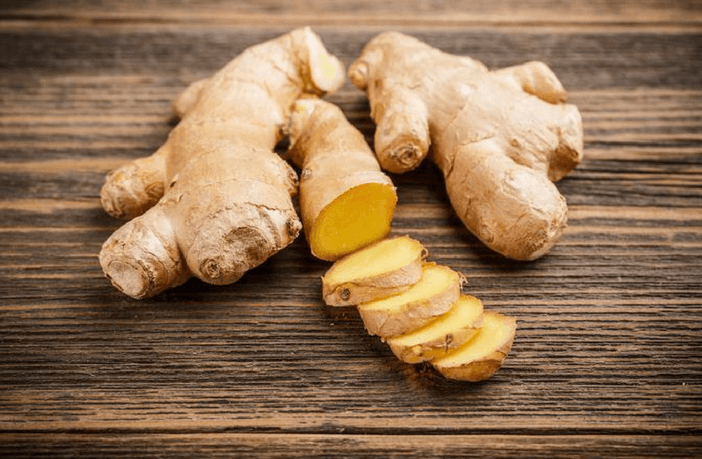 Image Source: livestrong
Image Source: livestrong
Ginger is a strong antioxidant and has natural antibodies in it. Consuming ginger kills cold viruses, combats chills, and fever and has even shown to prohibit the emergence of cancer-causing cells.
Recommended Age: 8 + Months
How to add it to your baby’s diet?
- Till the age of 1 year, just a small piece of grated ginger can be added to pureed foods such as sweet potato puree, pea puree, potato puree and also to soups, dal ka paani, khichdi and rice.
#8. Mushrooms
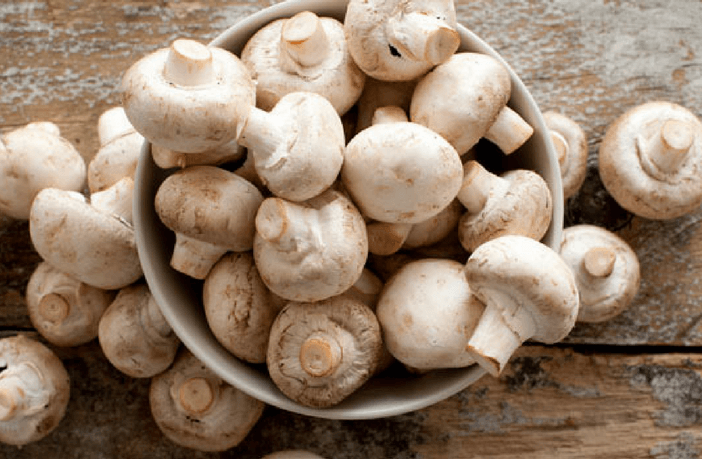 Image Source: bbcgoodfood
Image Source: bbcgoodfood
Apart from having antibacterial, antiviral and antitumor properties, mushrooms are a rich source of Vitamin C and zinc which help in the production of white blood cells and boost the immune system. Mushrooms help in fighting cold, flu, fever etc.
Recommended Age: 10 + Months
How to add it to your baby’s diet?
- Mushrooms can be given to babies in the form of soups.
- It can be given as a puree with some other food, like mushroom and sweet potato puree.
#9. Sweet Potatoes (Shakarkand)
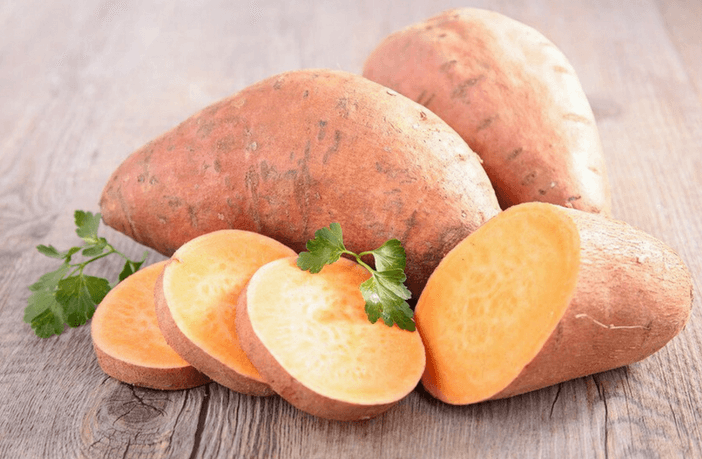 Image Source: dr. axe
Image Source: dr. axe
Sweet potatoes are rich in nutrients such as beta-carotene, Vitamin A, and Vitamin C which helps in strengthening the immune system. They are also a rich source of potassium which is essential for a child’s development.
Recommended Age: 6 + months
How to add it to your baby’s diet?
- Sweet potatoes can be given in the form of purees and soups.
- In a salad, pancake, as a french toast or baked.
Also Read: 21 Weight Gain Foods for Babies
#10. Eggs
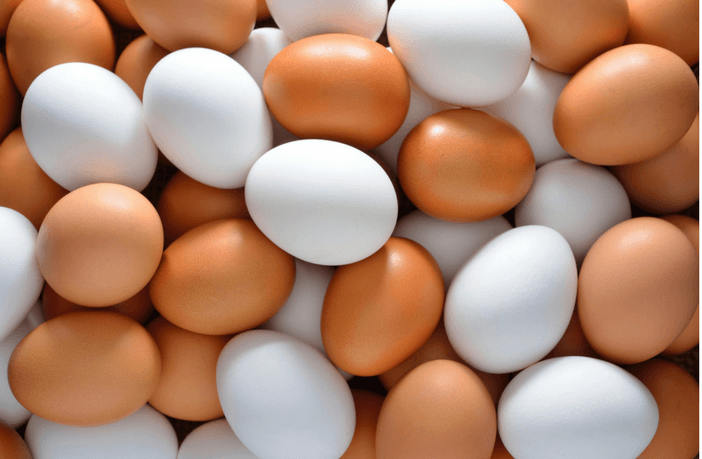 Image Source: livestrong
Image Source: livestrong
Eggs are a rich source of protein, vital vitamins and minerals such as zinc, iron, vitamins A, B, and D, which help in boosting the immune system.
Recommended Age: 9 + months (egg yolk only)
How to add it to your baby’s diet?
- You can start by giving pureed egg yolk and later give boiled egg yolk, mashed egg yolk with carrots, scrambled egg yolk, egg yolk with rice, egg yolk and vegetable omelette and egg dosa to your child.
Note: Egg whites can cause allergies in children and should not be given before the child’s first birthday.
#11. Nuts
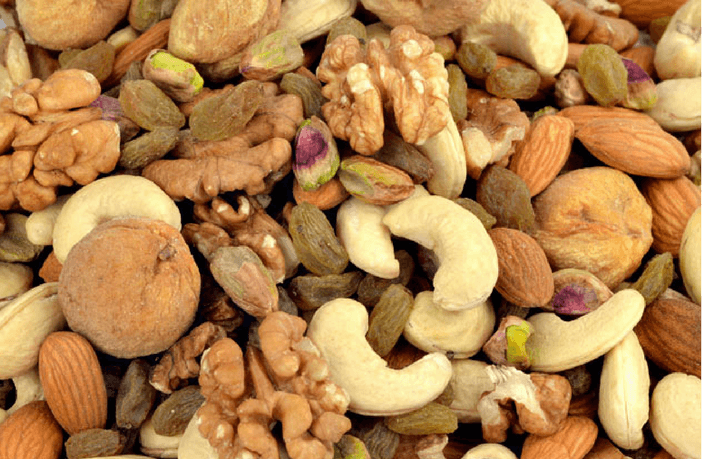 Image Source: vadilal champaklal
Image Source: vadilal champaklal
Nuts are a rich source of protein, energy, vitamins, minerals, and antioxidants, which strengthens the immune system and keeps the ailments away. Apart from boosting the immune system, nuts also help in enhancing the brainpower of kids.
Recommended Age: 10 + Months (powdered)
How to add it to your baby’s diet?
- Dry fruit powder can be added to various baby foods such as purees, pancake, smoothies, dosas, yogurt and porridge.
- You can also prepare dry fruits ladoo or halwa.
- Babies above 1 year can be given dry fruit powder in milk.
Note: Some dry fruits and/or nuts can cause allergies so if you’re giving powdered nuts to your child and notice any allergic reactions, try and omit one nut at a time to find out which nut your child is allergic to. You can consult your pediatrician for further investigation.
#12. Berries
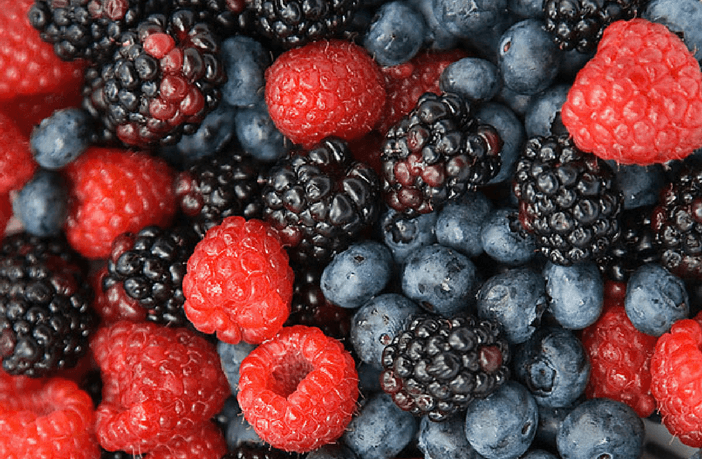 Image Source: healthland.time
Image Source: healthland.time
Strawberries, Raspberries, Blueberries, Cranberries etc contains a vast amount of Vitamin A, Vitamin C, and antioxidants such as anthocyanin, making them one of the best source of getting immunity-boosting nutrients. They help in increasing anti-inflammatory compounds and natural killer cells which help in preventing diseases.
Recommended Age: 10 + months
How to add it to your baby’s diet?
- You can give pureed berries to your baby or add it to yogurt.
- Berries can be given stewed, added to smoothies and muffins.
#13. Avocados
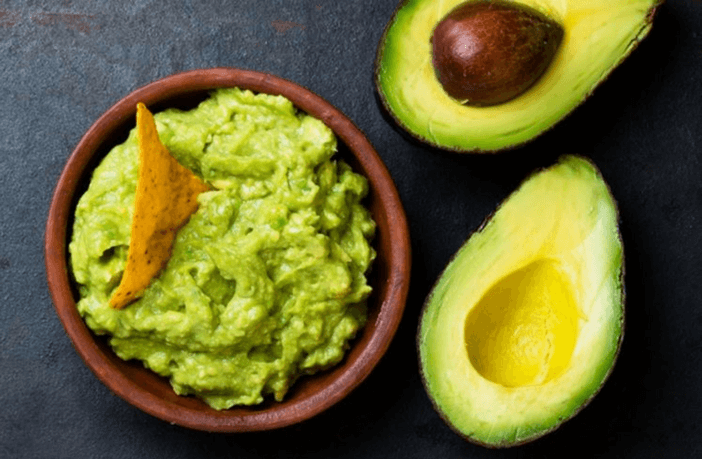 Image Source: Foxnews
Image Source: Foxnews
Avocados are loaded with essential fatty acids and monounsaturated fats which are the good fats. These fats are needed for the optimal development of the baby’s brain and nervous system and they also help the immune system to recognize and keep infections at bay.
Recommended Age: 6 + months
How to add it to your baby’s diet?
- You can give pureed avocado to your baby or add it to yogurt.
- You can spread mashed avocado on a toast, use it as a topping on baked potatoes, in the form of soup and with rice.
Make these superfoods to improve a baby’s immunity as part of your child’s diet and see how they stay away from seasonal complaints!
Also Read: 31 Healthy Recipes Using Weight Gain Foods for Babies and Kids
Want to share your mommy experience with other moms through words or images? Become a part of the Moms United community. Click here and we will get in touch with you
null
null